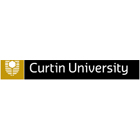Bachelor of Science (Health Promotion)
Bachelor of Science (Health Promotion)
In this course you’ll gain a keen understanding of social, political, economic and environmental factors that influence health. You’ll discover ways to plan and implement health promotion strategies such as health policy, advocacy, community education or development, and you’ll be trained to evaluate their benefits and effectiveness. In your first…
Categories
COURSE DESCRIPTION
In this course you’ll gain a keen understanding of social, political, economic and environmental factors that influence health.
You’ll discover ways to plan and implement health promotion strategies such as health policy, advocacy, community education or development, and you’ll be trained to evaluate their benefits and effectiveness.
In your first year you’ll study the foundations of public health including biostatistics, epidemiology and human biology, and health in social and cultural contexts. Throughout your second and third years you’ll learn about social justice and how to improve the health of marginalised people. You’ll also participate in fieldwork visits and complete an on-campus health promotion project.
In your final year you’ll complete a 100-hour professional placement with a health promotion organisation to develop and practice important industry skills and competencies before you graduate. There are also opportunities to progress your skills and expertise in a supportive, professional environment at CERIPH, an internationally acclaimed research centre located at Curtin Perth, as well as optional overseas study tours.
Double degree options
You can study a Bachelor of Science (Health Promotion) as part of a double degree with a Bachelor of Science (Health and Safety).
What jobs can the Health Promotion lead to?
Careers
Community development officer
Health promotion officer
Policy officer
Project officer
Research officer
Workplace health coordinator.
Industries
Community health
Health research
International aid
Local and state government
Non-government organisations
What you’ll learn
Apply health promotion concepts and practice to enhance the health and well-being of populations. Demonstrate an understanding of human health, illness and wellbeing from a biological and social context.
Critically analyse issues relevant to health promotion. Think creatively to generate innovative solutions to promote health
Access, evaluate and synthesise relevant information to develop sustainable health promotion programs
Communication with professional and community members to promote health using effective written and oral communication. Communicate with individual and groups to advocate for improved health. Emphasise the significance of health promotion research to the scientific community using effective methods of communication
Effectively use new and existing technologies to gather information, analyse data and communicate
Take responsibility for own learning and professional development in the health promotion field
Apply international perspectives and principles to healthy promotion
Demonstrate understanding and respect for individual human rights and cultural diversity
Work professionally and ethically across a range of settings. Demonstrate independence and leadership in project management
REQUIREMENTS
Students from different countries should have qualifications equivalent to Australian Year 12 and a scaled mark of at least 50 in English, Literature, or English as an Additional Language or Dialect.
IELTS (International English Language Testing System) – Listening, Reading, Writing, and Speaking – 6.0; Overall band score 6.5; TOEFL Score: 79 (overall); Reading 13; Listening 13; Speaking 18; Writing 21; Pearson Test of English – Listening, Reading, Writing, and Speaking – 50; Overall band score 58; TOEFL (Test of English as a Foreign Language) and PBT (Paper Based Test) – 570 and 4.5 in TWE; C1 Advanced Formerly known as Cambridge English: Advanced (CAE) 176 with 169 in Reading, Writing, Listening and Speaking. C2 Proficiency Formerly known as Cambridge English: Proficiency (CPE) 190 with 176 in Reading, Writing, Listening and Speaking.
EDUCATIONAL INSTITUTION
Curtin University is Western Australia’s largest and most culturally diverse university with Australia’s third largest international student population. Around 60,000 students from more than 130 countries study a Curtin degree, at locations including Perth, Margaret River, Kalgoorlie, Sydney, Malaysia and Singapore. Our cultural diversity adds a rich and valuable dimension to the campus atmosphere, preparing all graduates to live and work effectively in an increasingly global environment. We offer a range of industry-aligned undergraduate and postgraduate courses in business, humanities, health, engineering and related sciences. We also have a long-standing focus on Aboriginal and Torres Strait Islander education and culture, supported by our Centre for Aboriginal Studies.Curtin is widely recognised for its practical research that is focused on solving timely, real-world problems. In recent years our research activity has grown significantly, driving our rapid rise up the international university rankings.As a university that never settles, we will continue to develop existing partnerships and establish new ones in areas relevant to our research and teaching.




